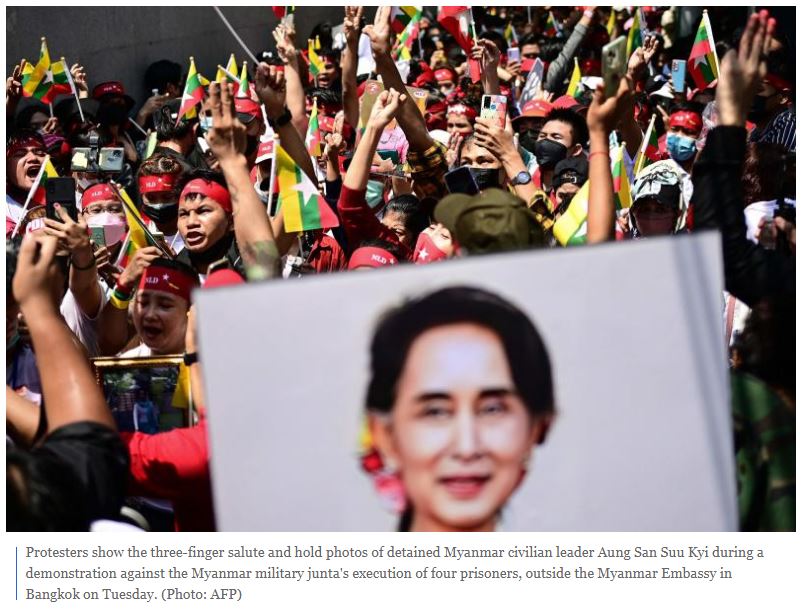Myanmar ‘has enough funds to avert Sri Lanka-like crisis’
Myanmar has sufficient foreign reserves to avoid an economic crisis similar to Sri Lanka’s, the military government said, pushing back on suggestions by some analysts that the Southeast Asian nation faces a growing possibility of default.
Maj Gen Zaw Min Tun, a spokesman for the State Administration Council, said at a press conference on Tuesday that Myanmar has a “fair share of foreign-currency reserves,” including United States dollars and Chinese yuan, without giving specific figures.
The regime, which toppled a civilian government headed by Nobel Laureate Aung San Suu Kyi in a February 2021 coup, has cracked down on the use of foreign currencies since April to shore up dwindling international reserves. Cars and luxury-goods imports have been banned.
“There is no reason to face a Sri Lanka-like economic decline because Myanmar already has US dollar reserves to some extent,” Zaw Min Tun said in response to a question on whether Myanmar could become the next Sri Lanka. “We already have the basics to avoid such an economic decline.”
Malayan Banking Bhd said in a report last week that Myanmar is among the frontier-market economies where the likelihood of sovereign defaults is growing. Maybank analysts Brian Lee Shun Rong and Chua Hak Bin wrote that Myanmar’s ban on payments of private external debt suggests it may choose not to honour its obligations.
The World Bank said in a report last week that Myanmar’s economy remains fragile, as dollar shortages limit the availability of key imported products, resulting in price inflation particularly among commodities.
Earlier this month, the Central Bank of Myanmar ordered companies with outstanding foreign loans to suspend disbursements toward those debts and adjust repayment schedules with foreign lenders. Firms in Myanmar have at least $1.2 billion in outstanding dollar-denominated loans, according to data compiled by Bloomberg.
Myanmar’s currency lost a third of its value against the dollar last year after the coup triggered a freeze on parts of the nation’s foreign reserves held in the US and suspension of multilateral aid — both key sources of foreign currency supplies.
Most foreign exchange earners are mandated to convert their currencies into kyat at the central bank’s reference rate of 1,850 to a dollar set in April, a move designed to shield the local currency from volatility.
Myanmar plans to set up a 400 billion kyat ($219 million) fund to grant low-interest loans to local enterprises to support industries based on agriculture and livestock breeding, which the junta expects to help revive the economy.


 Thailand
Thailand




